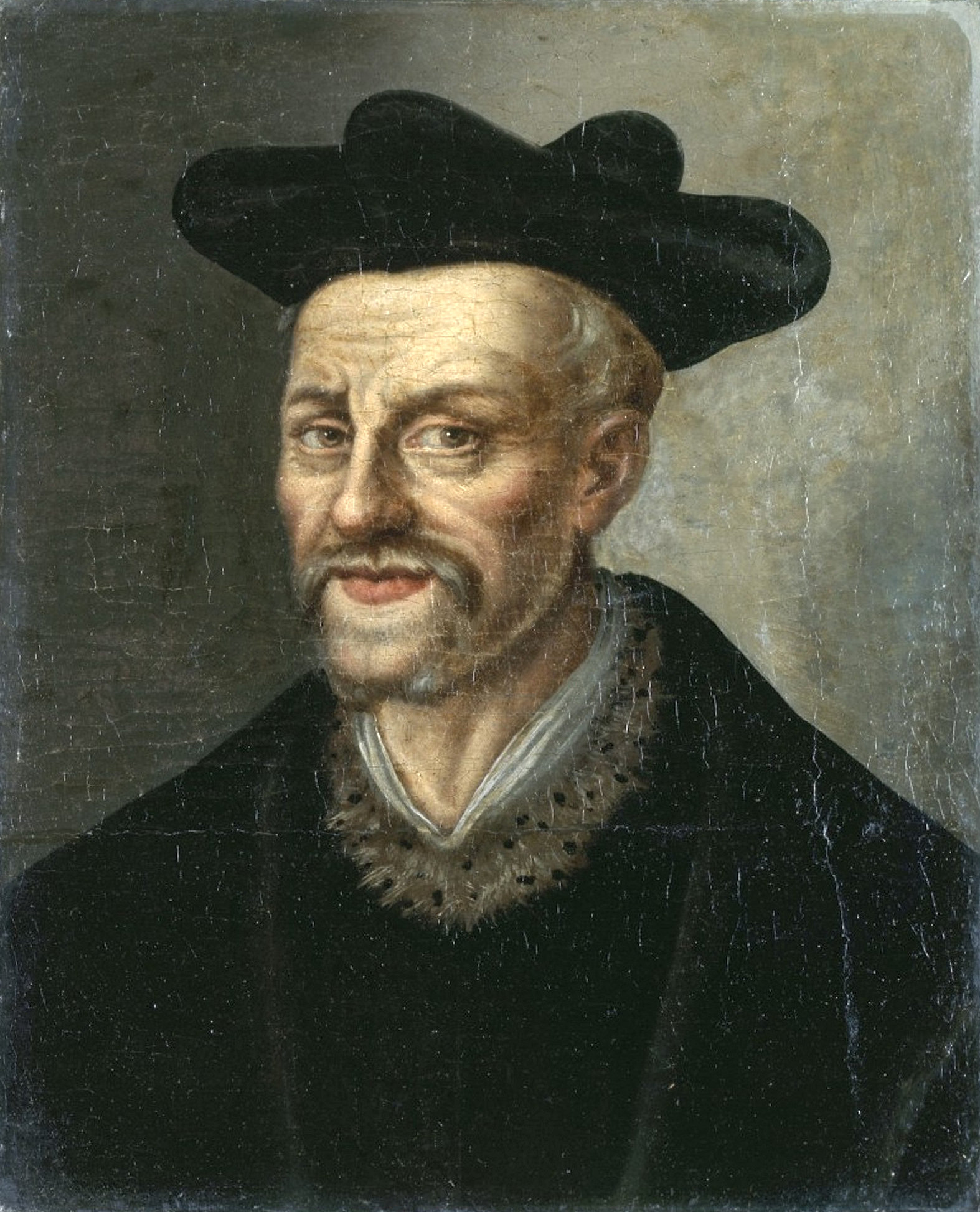Francois Rabelais frasi celebri
“Come potrei governare altrui, io che non saprei governare me stesso?”
libro I, cap. LII; 1925
Gargantua e Pantagruele
“Amici, voi noterete che al mondo vi sono assai più coglioni che uomini; ricordatevene!”
libro quinto, cap. VIII; 1925
Francois Rabelais Frasi e Citazioni
“Che se la sete non è presente, bevo per la sete futura.”
libro I, cap. V; 1925
Gargantua e Pantagruele
“La più vera perdita di tempo che conoscesse era contare le ore.”
libro I, cap. LII
Gargantua e Pantagruele
libro III, prologo; 1925
Gargantua e Pantagruele
“L'appetito vien mangiando, diceva Angest di Mans, ma la sete se ne va bevendo.”
libro I, cap. V; 1925
Gargantua e Pantagruele
“Nelle loro regole c'era solo una frase: fai quello che ti pare.”
libro I, cap. LVII
Gargantua e Pantagruele
“Fa di non aver ricevuto invano le grazie che Dio t'ha dato.”
libro II, cap. VIII; 1925
Gargantua e Pantagruele
“Non riesce a esser debitore chiunque voglia, non riesce a far creditori chiunque voglia.”
libro III, cap. III; 1925
Gargantua e Pantagruele
libro III, cap. XXXII; 1925
Gargantua e Pantagruele
Francois Rabelais: Frasi in inglese
Queen Whims, or Queen Quintessence, in Ch. 20 : How the Quintessence cured the sick with a song
Gargantua and Pantagruel (1532–1564), Fifth Book (1564)
Contesto: The probity that scintillizes in the superfices of your persons informs my ratiocinating faculty, in a most stupendous manner, of the radiant virtues latent within the precious caskets and ventricles of your minds. For, contemplating the mellifluous suavity of your thrice discreet reverences, it is impossible not to be persuaded with facility that neither your affections nor your intellects are vitiated with any defect or privation of liberal and exalted sciences. Far from it, all must judge that in you are lodged a cornucopia and encyclopaedia, an unmeasurable profundity of knowledge in the most peregrine and sublime disciplines, so frequently the admiration, and so rarely the concomitants of the imperite vulgar. This gently compels me, who in preceding times indefatigably kept my private affections absolutely subjugated, to condescend to make my application to you in the trivial phrase of the plebeian world, and assure you that you are well, more than most heartily welcome.
Origine: Gargantua and Pantagruel (1532–1564)
Contesto: Readers, friends, if you turn these pages
Put your prejudice aside,
For, really, there's nothing here that's outrageous,
Nothing sick, or bad — or contagious.
Not that I sit here glowing with pride
For my book: all you'll find is laughter:
That's all the glory my heart is after,
Seeing how sorrow eats you, defeats you.
I'd rather write about laughing than crying,
For laughter makes men human, and courageous.
“Science without conscience is the soul's perdition.”
Origine: Pantagruel
“Come, pluck up a good heart; speak the truth and shame the devil.”
Author's prologue.
Gargantua and Pantagruel (1532–1564), Fifth Book (1564)
“the wise may be instructed by a fool”
Origine: Gargantua and Pantagruel
“We have here other fish to fry.”
Origine: Gargantua and Pantagruel (1532–1564), Fifth Book (1564), Chapter 12.
Origine: Gargantua and Pantagruel (1532–1564), Gargantua (1534), Chapter 50 : Gargantua's speech to the vanquished -->
“It is enough to fright you out of your seven senses.”
Origine: Gargantua and Pantagruel (1532–1564), Fifth Book (1564), Chapter 15.
“He always looked a given horse in the mouth.”
Origine: Gargantua and Pantagruel (1532–1564), Gargantua (1534), Chapter 11.
“So much is a man worth as he esteems himself.”
Origine: Gargantua and Pantagruel (1532–1564), Pantagruel (1532), Chapter 29 : How Pantagruel discomfited the three hundred Giants armed with free-stone, and Loupgarou their Captain (Loup-garou is the french term for werewolf).
“Panurge had no sooner heard this, but he was upon the high-rope.”
Origine: Gargantua and Pantagruel (1532–1564), Fifth Book (1564), Chapter 18.
“He freshly and cheerfully asked him how a man should kill time.”
Origine: Gargantua and Pantagruel (1532–1564), Fourth Book (1548, 1552), Chapter 62.
“Others made a virtue of necessity.”
Origine: Gargantua and Pantagruel (1532–1564), Fifth Book (1564), Chapter 22.
Origine: Gargantua and Pantagruel (1532–1564), Gargantua (1534), Chapter 50 : Gargantua's speech to the vanquished.
Origine: Gargantua and Pantagruel (1532–1564), Fourth Book (1548, 1552), Chapter 41.
“It is meat, drink, and cloth to us.”
Origine: Gargantua and Pantagruel (1532–1564), Fifth Book (1564), Chapter 7.
“And so on to the end of the chapter.”
Origine: Gargantua and Pantagruel (1532–1564), Fifth Book (1564), Chapter 10.
“Nothing is so dear and precious as time.”
Origine: Gargantua and Pantagruel (1532–1564), Fifth Book (1564), Chapter 5.
“A certain jollity of mind, pickled in the scorn of fortune.”
Certaine gayeté d'esprit conficte en mespris des choses fortuites.
Prologue de l'autheur.
Gargantua and Pantagruel (1532–1564), Fourth Book (1548, 1552)
“Needs must when the Devil drives.”
Origine: Gargantua and Pantagruel (1532–1564), Fourth Book (1548, 1552), Chapter 57.
Pour ce que rire est le propre de l'homme.
Rabelais to the Reader (prefatory note on leading page).
Gargantua and Pantagruel (1532–1564), Gargantua (1534)
Origine: Gargantua and Pantagruel (1532–1564), Pantagruel (1532), Chapter 8.
“A good crier of green sauce.”
Origine: Gargantua and Pantagruel (1532–1564), Gargantua (1534), Chapter 31.
“I am going to seek a grand perhaps; draw the curtain, the farce is played.”
Je m'en vais chercher un grand peut-être; tirez le rideau, la farce est jouée.
Last words, according to the Life of Rabelais (1694) by Peter Anthony Motteux.
Variant translations:
I am going to seek the great perhaps.
I am going to search for the great perhaps.
Origine: Gargantua and Pantagruel (1532–1564), Gargantua (1534), Chapter 46.
Origine: Gargantua and Pantagruel (1532–1564), Gargantua (1534), Chapter 43.
Origine: Gargantua and Pantagruel (1532–1564), Gargantua (1534), Chapter 32.
